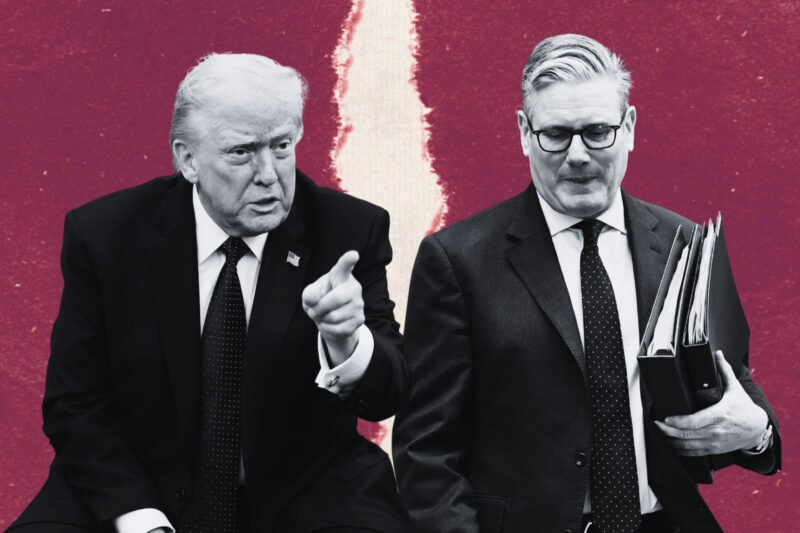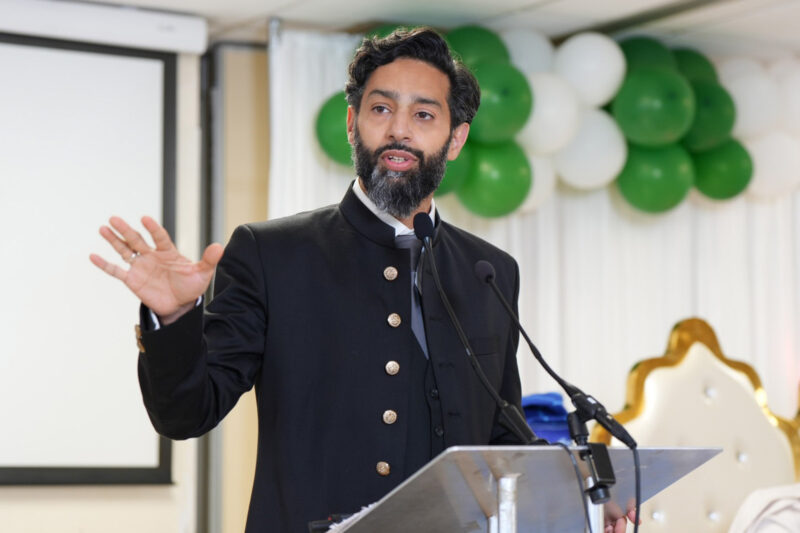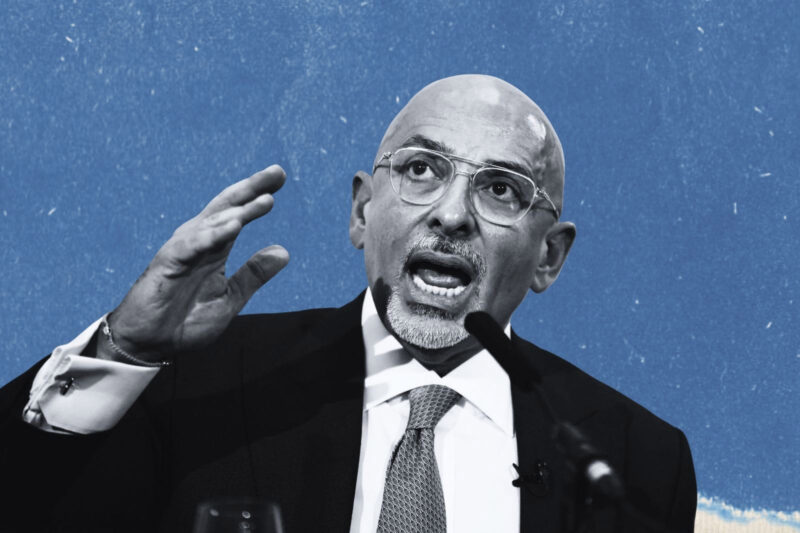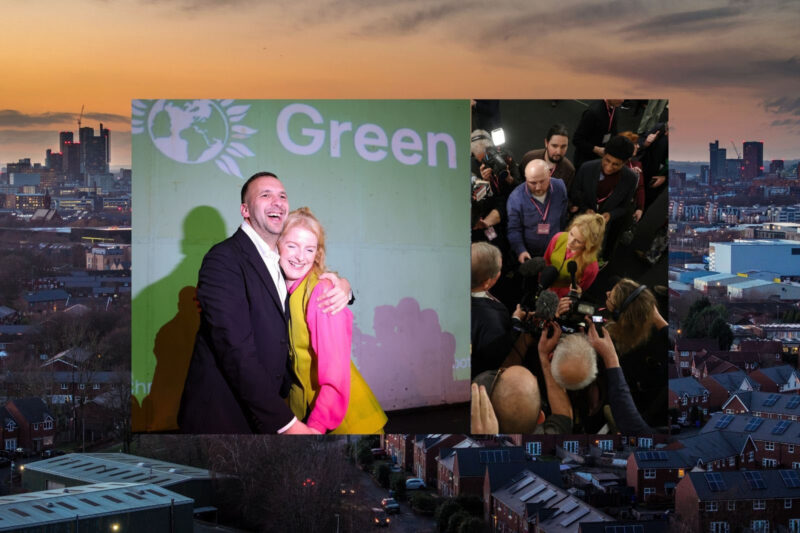Tory leadership race is hugely important for British Muslims — in more ways than one
Kemi Badenoch and Robert Jenrick’s camps have doubled down on statements seen as Islamophobic. That has an impact beyond the Conservative party

This is a new world for the majority of the Conservative MPs who are left in Westminster. Fewer colleagues, less power and less influence. It is any politician’s worst nightmare.
The descent from power in our political system is brutally swift. Once senior cabinet ministers who would walk through Westminster with security details and a team of advisers around them are now regularly being spotted in SW1 cafeterias having coffee alone. The fall from grace is both stark and rapid.
Their party having been in power for 14 years, most of the 121 Tory MPs have never been in opposition by my calculation. As time goes by, I suspect they will find the trappings of being out of government rather frustrating. Blair-era Labour MPs have told me how difficult they found the transition in 2010, suddenly having no influence over policy and being taken less seriously than before.
Those remaining Tories still coming to terms with their new reality must also look to the future as they elect a new leader. For them, it is an opportunity for the Conservatives to reset, regroup, potentially rebrand and offer a different kind of politics. But beyond the internal dramas of the Tory party that will inevitably dominate much of the coverage of this leadership election, this race is hugely important for the country.
Politically and constitutionally, the leader of the opposition plays a massive role — not just questioning the prime minister weekly in parliament, but helping build the narrative of our political discourse. The opposition is in a unique position to hold the government to account, highlight errors and speak for groups and communities who are being ignored. It is here the Tories could prosper.
We know some of the leadership hopefuls are eyeing up Reform UK voters, who they believe feel alienated. Win over those voters and they may believe they are a step closer to being back in power. But Reform’s new base is not the only group that has turned away from mainstream political parties. The last election saw British Muslims’ traditional support of the Labour party decline with five pro-Gaza independent MPs in areas with significant Muslim populations being voted in. This could offer an opportunity for the Tories — and there are some within the Conservatives who think they could make a convincing case that the party could be the home for disaffected British Muslims.
“There is a lot in common with our community and the Tory party,” one senior Muslim Tory told me. “We are ‘small c’ conservatives. We believe in traditional family values and we love a sense of history, but we have struggled to get that across.”
An interesting piece of analysis — but the rhetoric from those running to be the next leader suggests courting British Muslims may not be foremost in their minds.
Kemi Badenoch, viewed by some as a potential favourite, has shown no indication of wanting to engage with British Muslims whatsoever. Instead, she caused offence by saying she thought the election of those independent MPs was “on the back of sectarian Islamist politics”, which she described as “alien ideas that have no place here”.
It has been suggested to Badenoch’s supporters, most notably to Chris Philp during a BBC Newsnight interview, that voters opted to support independent candidates because of policy decisions, not sectarianism — a suggestion Badenoch and her team reject. The comments were ultimately denounced as Islamophobia and an “outrageous slur” by the independent MPs, but appear to have had no impact on her popularity within the party.
Badenoch is not the only one to have caused controversy when talking about Muslims. Robert Jenrick, another potential frontrunner, came under fire for claiming protesters who say “Allahu Akbar” in public should be immediately arrested. The phrase, which means “God is great”, is repeated by every Muslim multiple times a day during prayers and is hardly an offensive term. The Muslim Association of Britain has accused Jenrick of “pure unadulterated Islamophobia” and Jenrick has since doubled down, which in private Tory circles has caused confusion. Again, though, his popularity within his party does not appear to have taken much of a hit — he topped the ballot in the first round of voting on Wednesday.
The other candidates — James Cleverly, Tom Tugendhat and Mel Stride — have all so far avoided talking about British Muslims. “They don’t care about us, they don’t think it’s a big enough vote winner, but I think they are wrong,” one senior Muslim Tory told me in response.
There is no indication this will change throughout the campaign, which is carded to be a rather long one. With Priti Patel knocked out on Wednesday, Tory MPs will whittle down the five remaining contenders to two finalists before party members get to have their vote. The main focus for the candidates will be, quite rightly, why they are the person to take on Keir Starmer — but given how openly some have made comments that have caused offence, many across the country will be worried about the continuation or even normalisation of Islamophobic rhetoric coming out of this campaign.
The Tories I speak to are adamant they are voting for the person who will be prime minister in 2029. They feel optimistic, given how quickly Starmer was able to turn around Boris Johnson’s big majority, that the manoeuvre could be reversed. They also all feel that Labour’s majority is shallow and will not take two terms to undo.
It may take some time before any candidate builds much momentum. But the next few months will undoubtedly have a huge impact on the future of our country and the communities who reside within it.
Shehab Khan is an award-winning presenter and political correspondent for ITV News
 Newsletter
Newsletter













